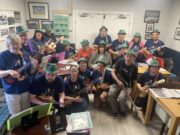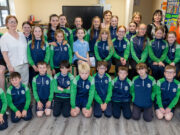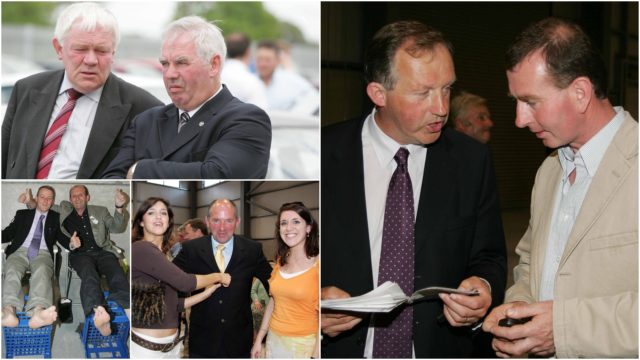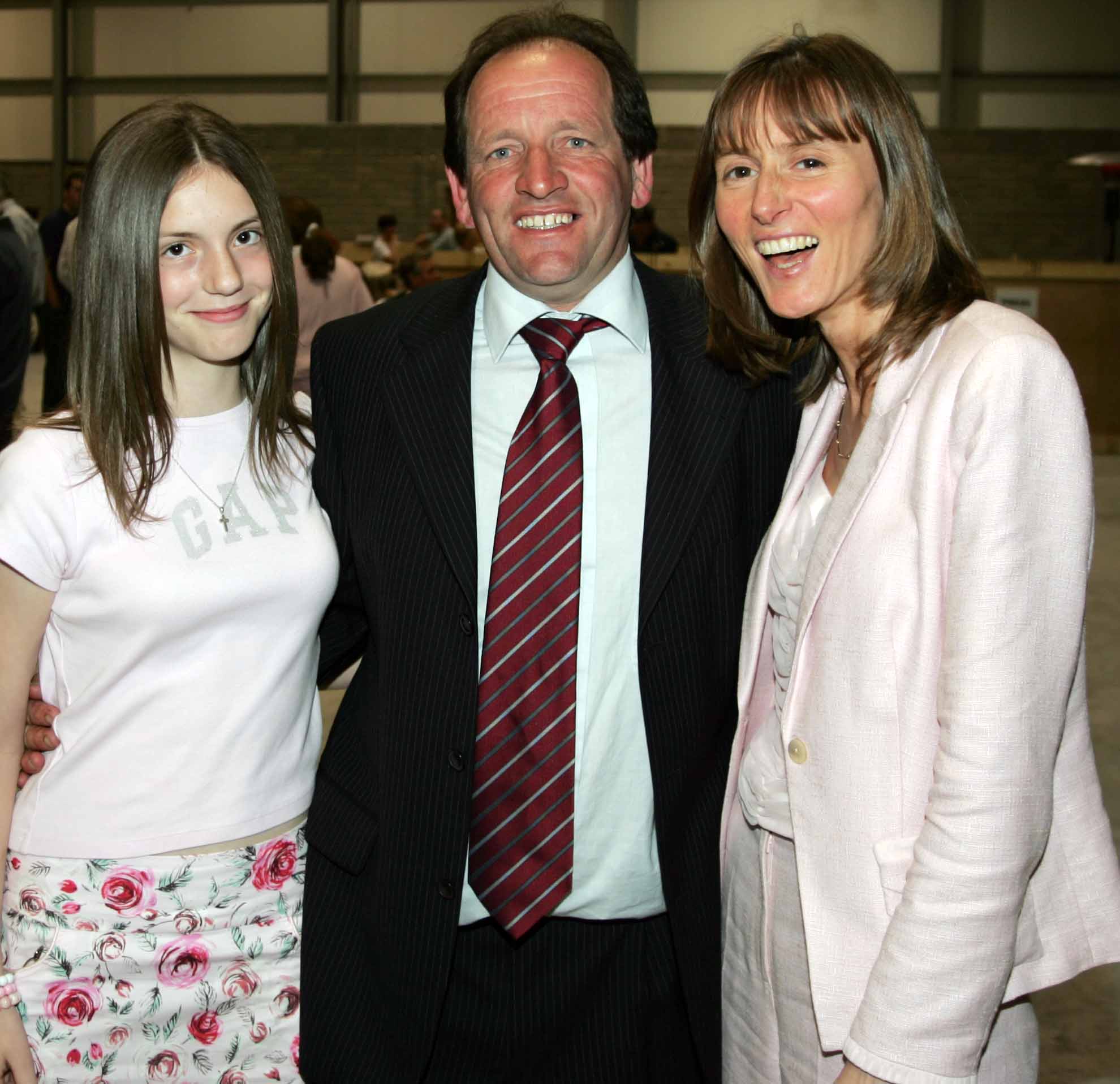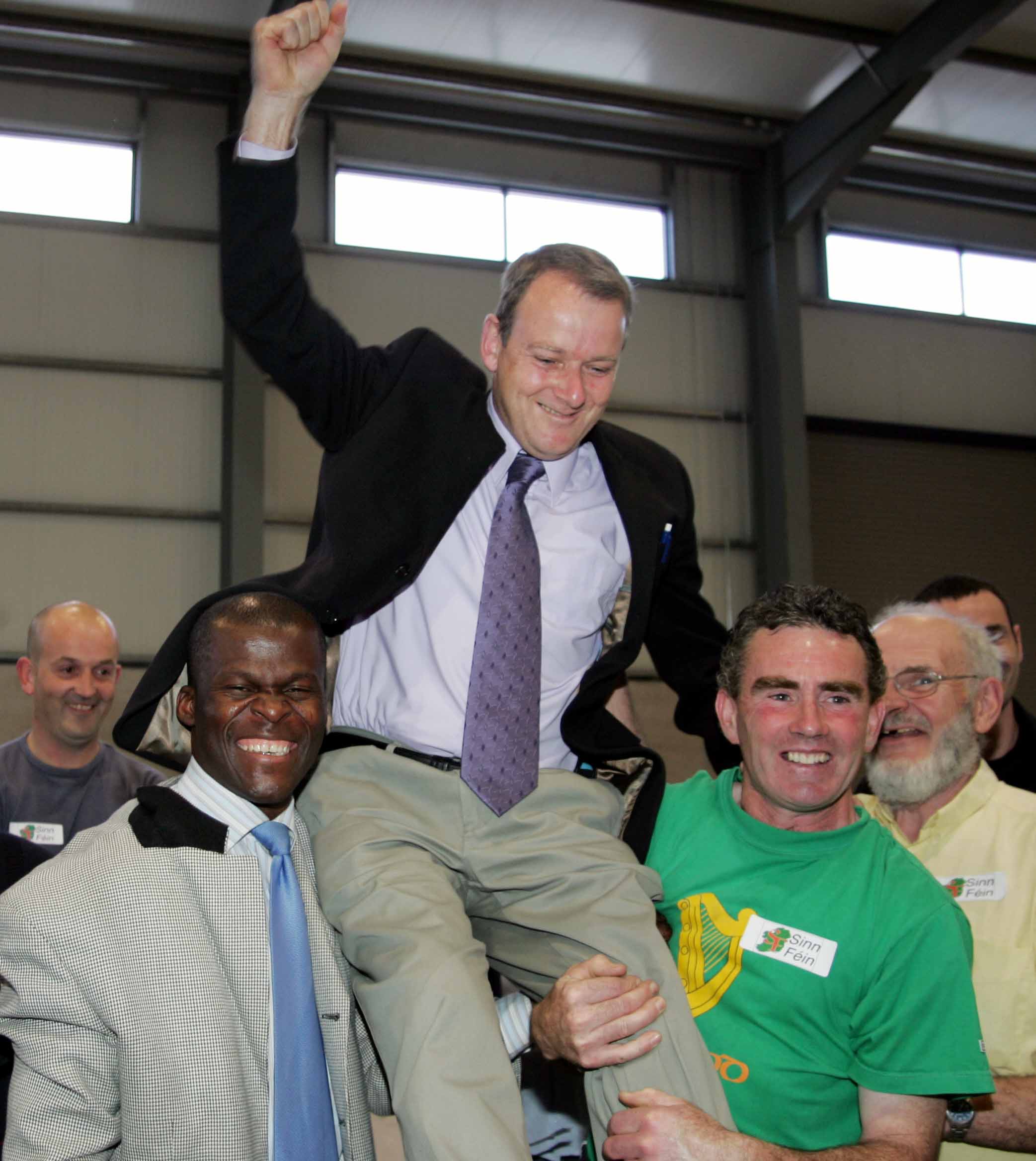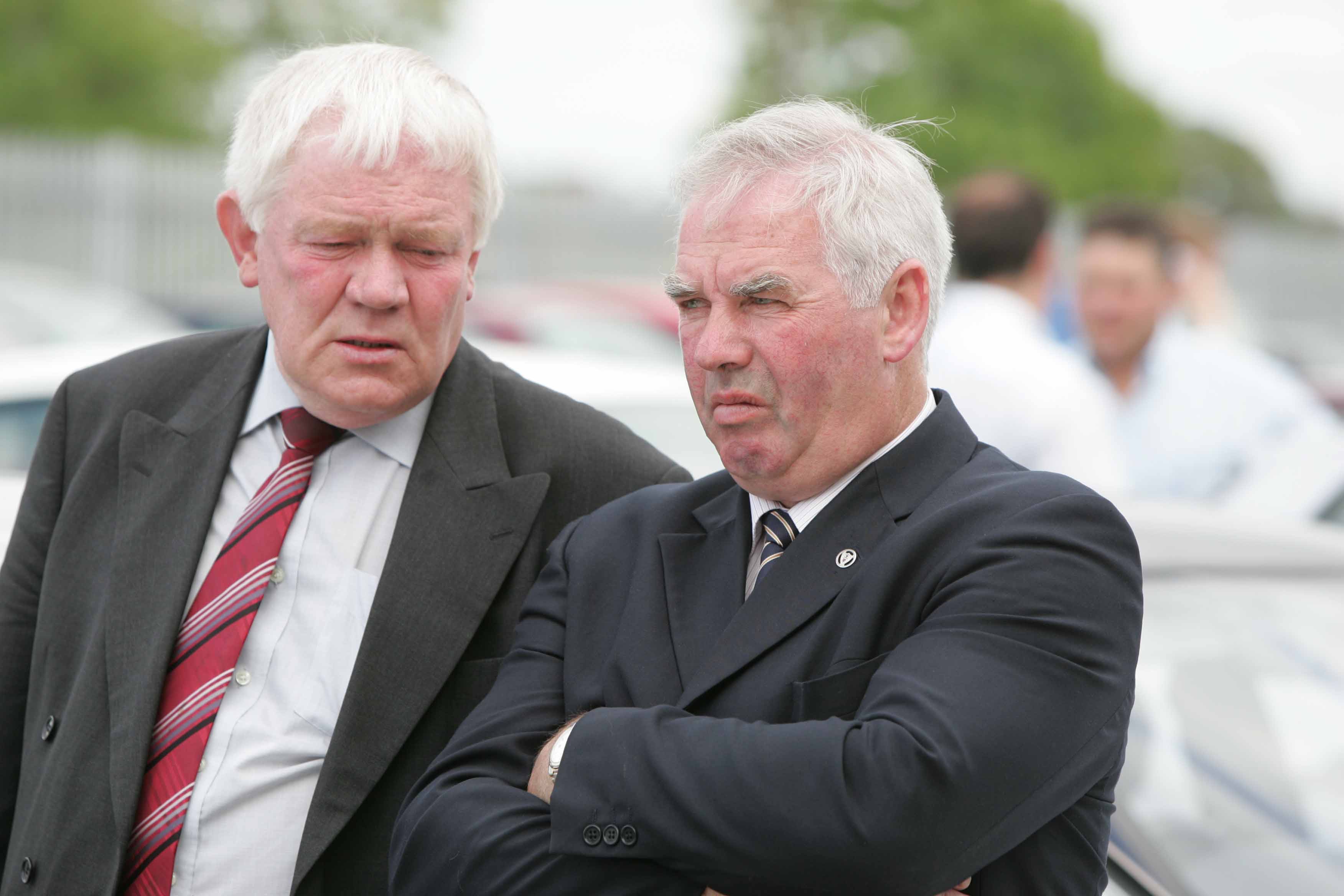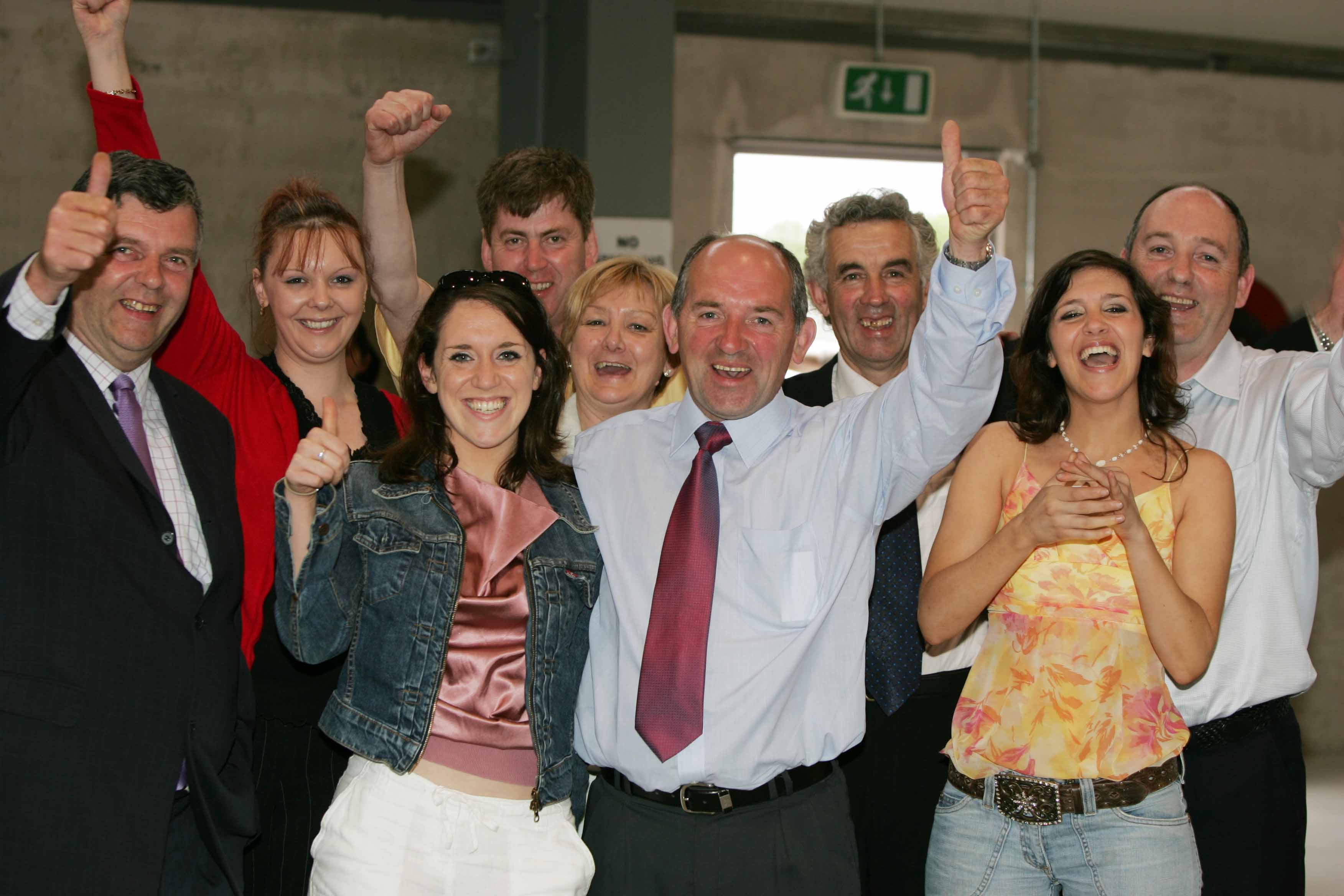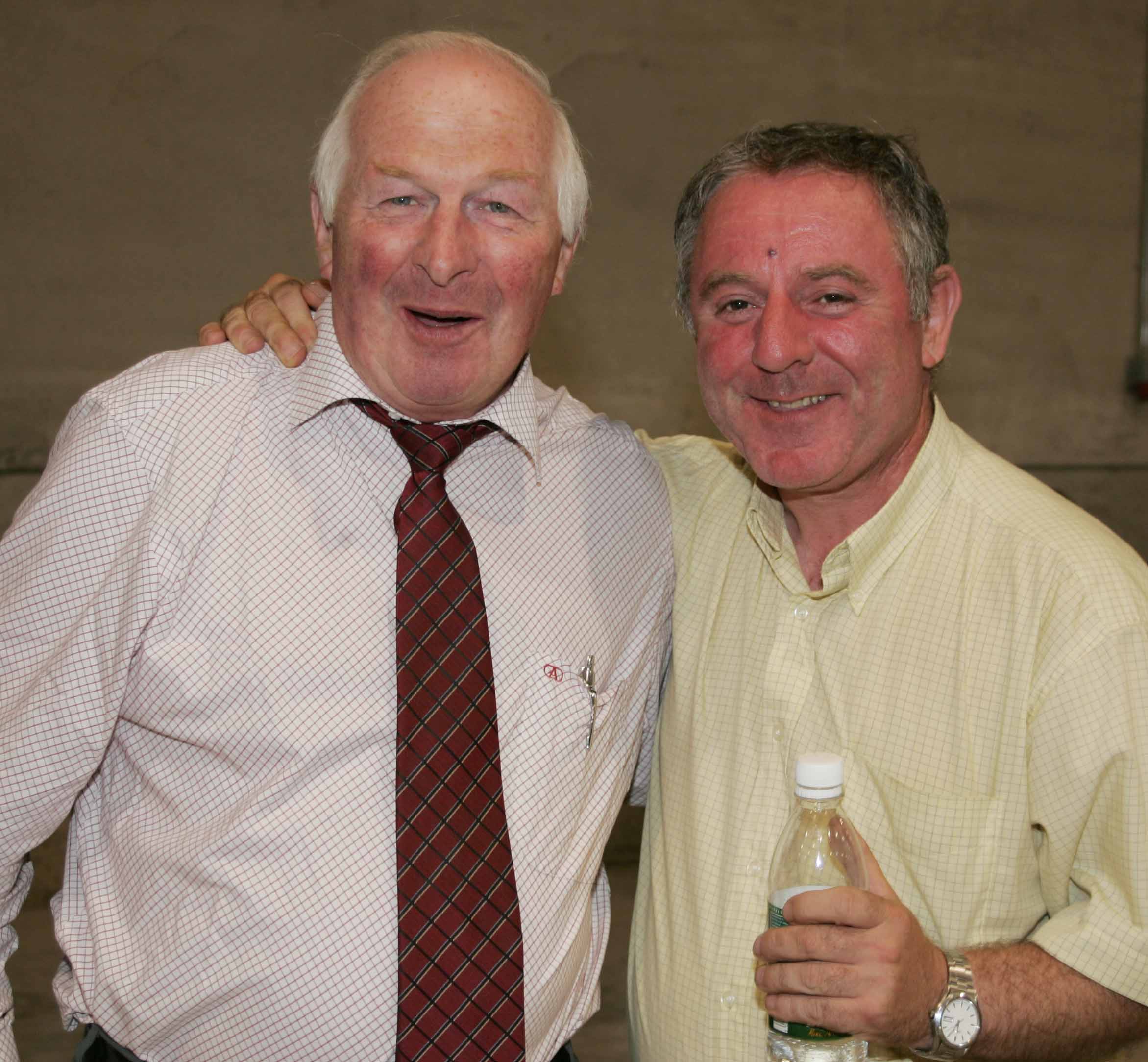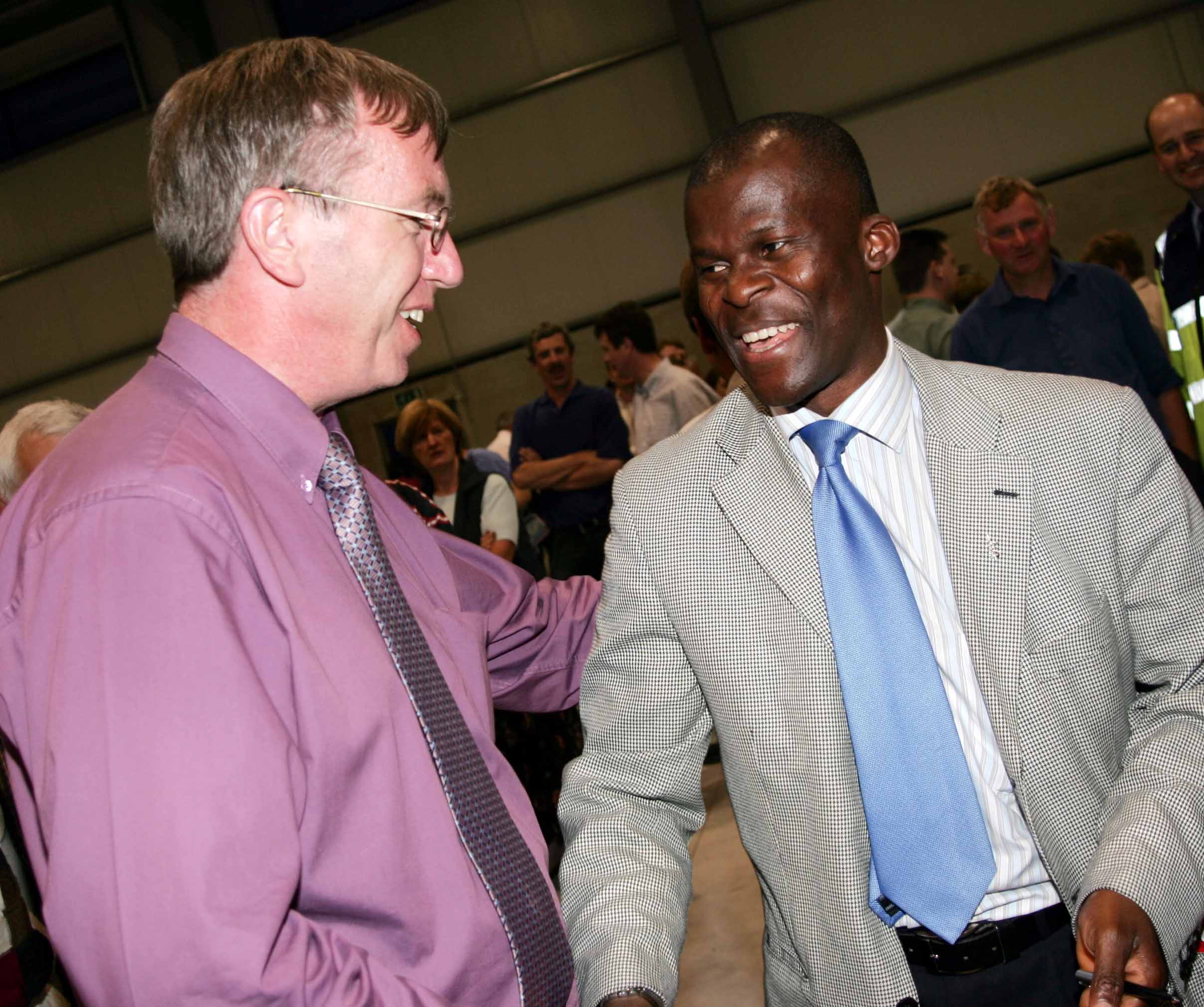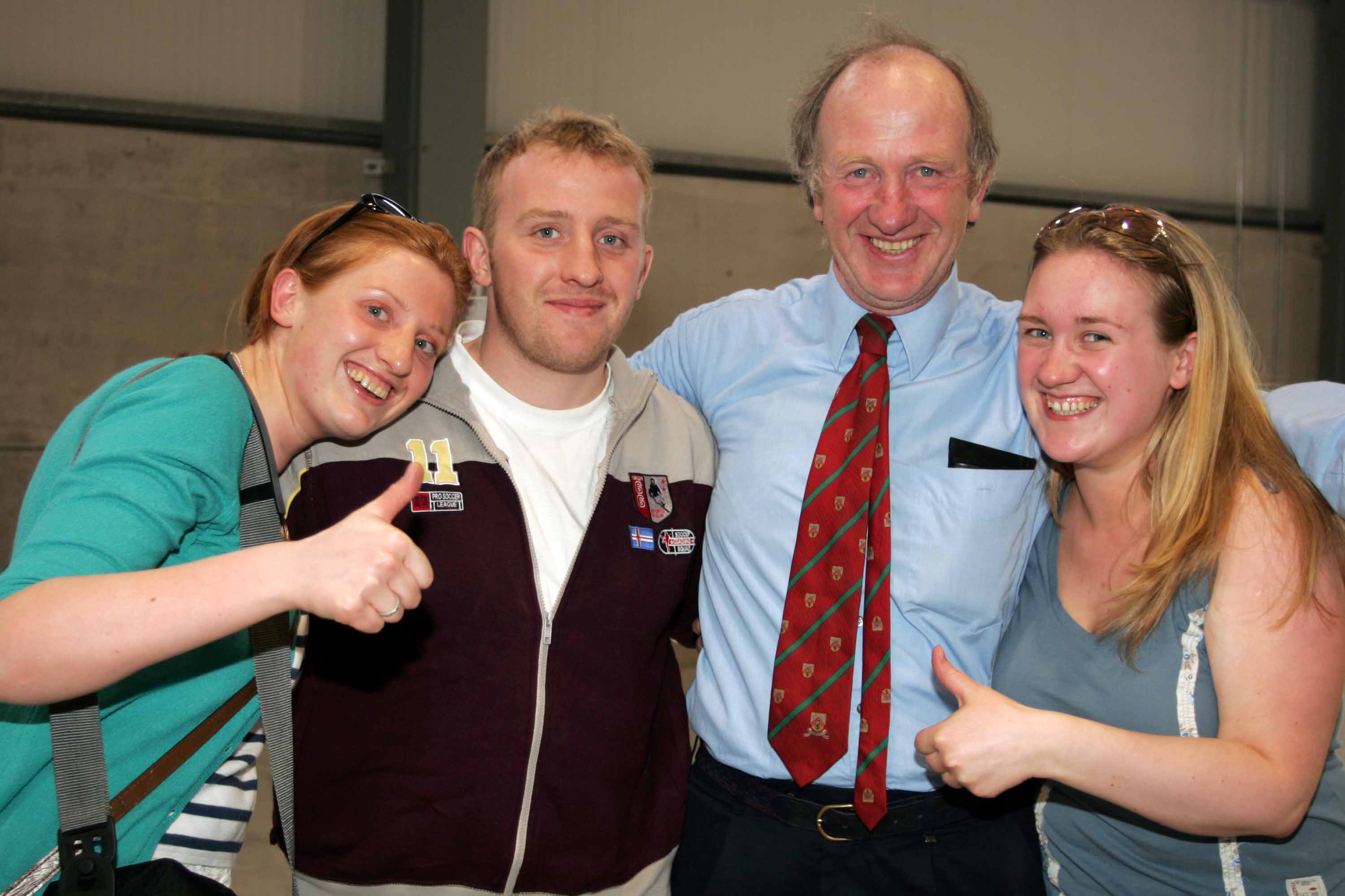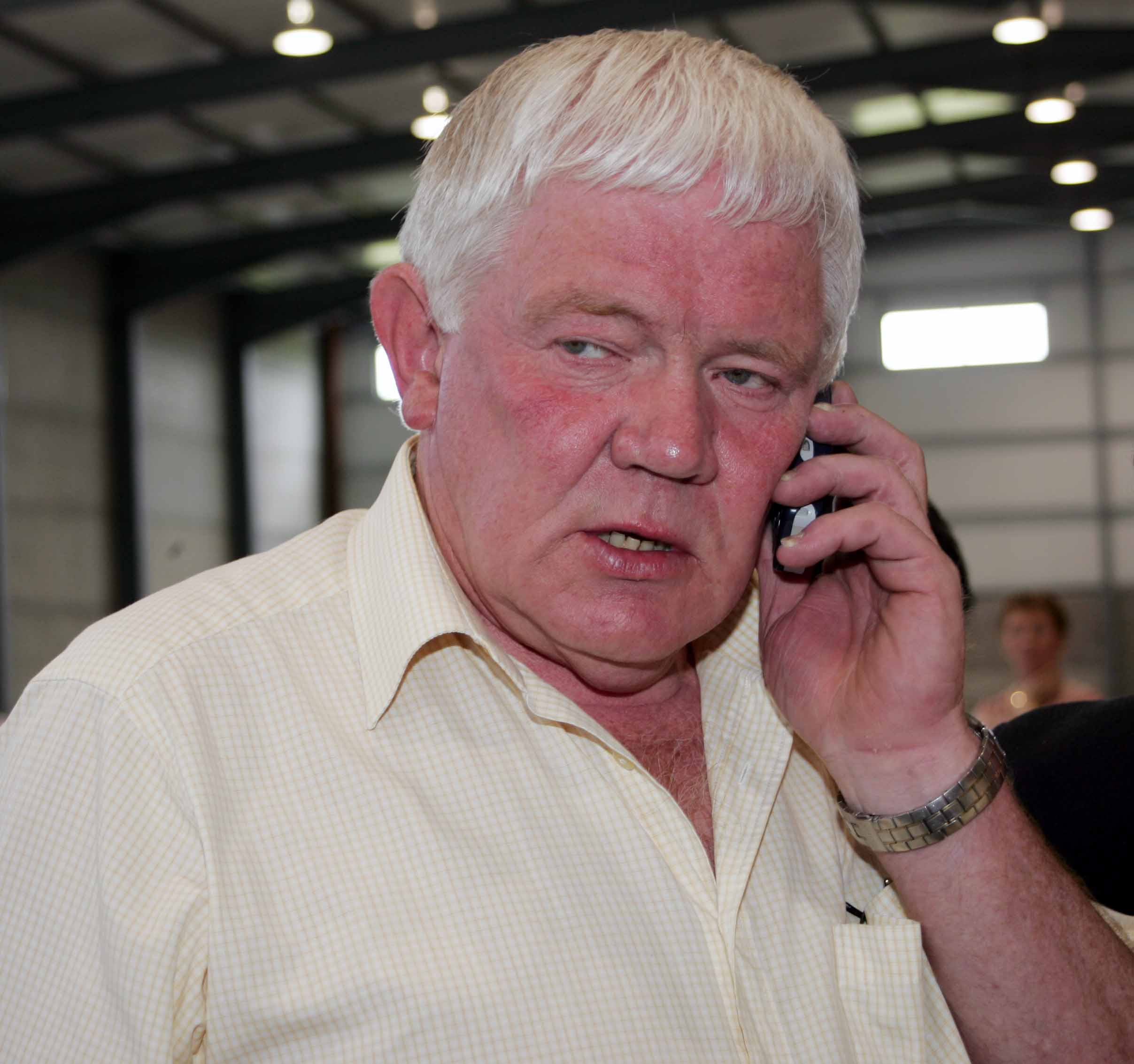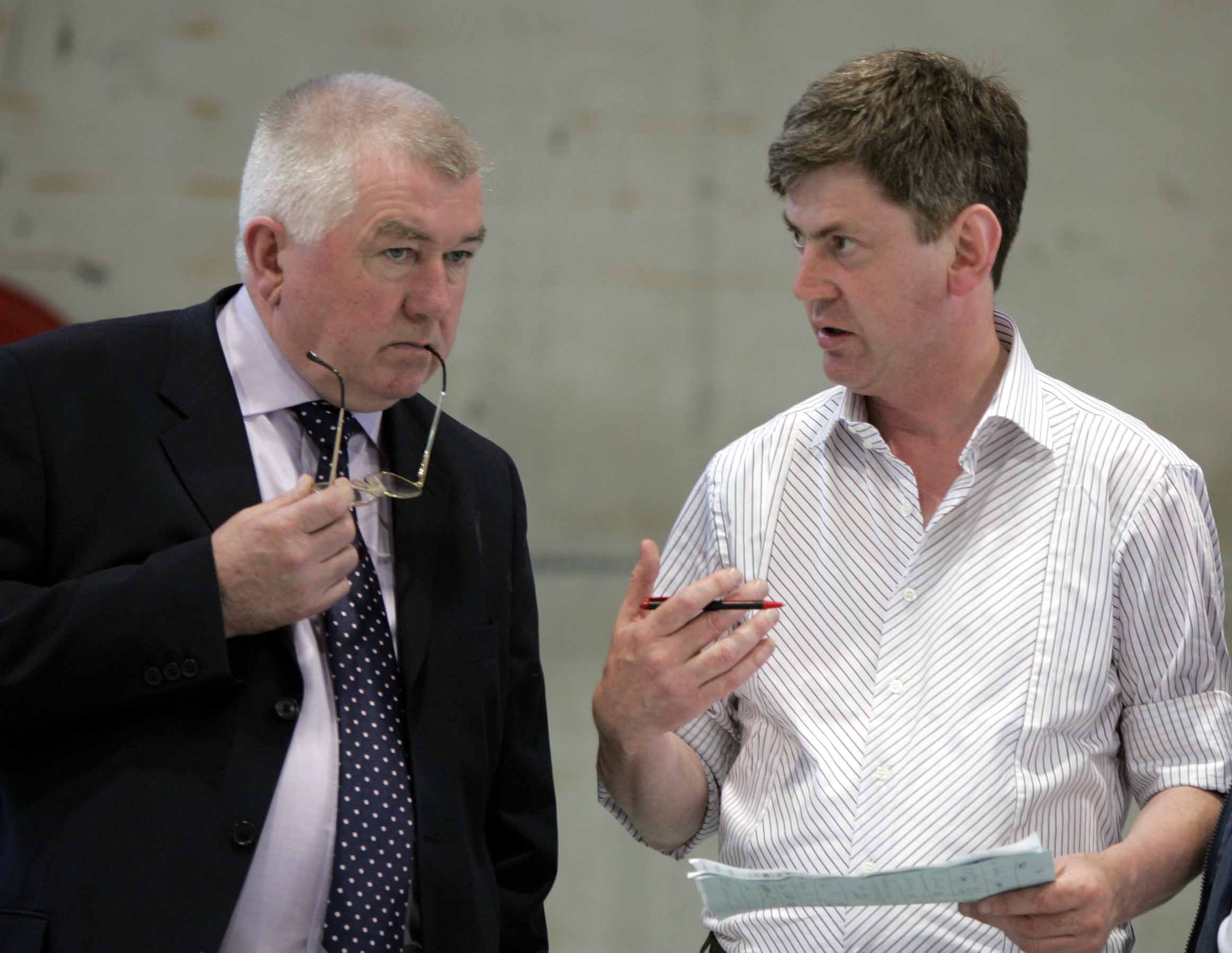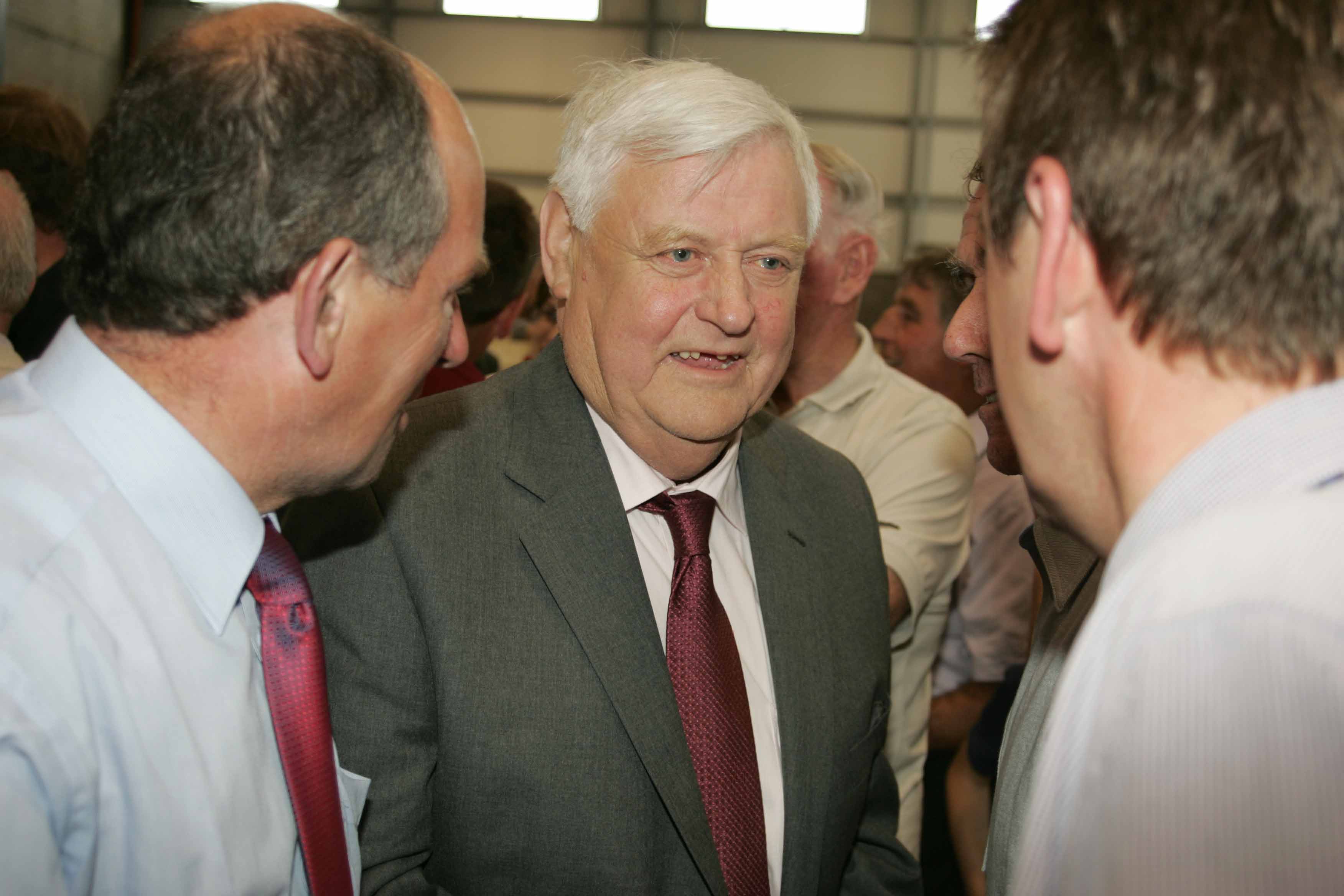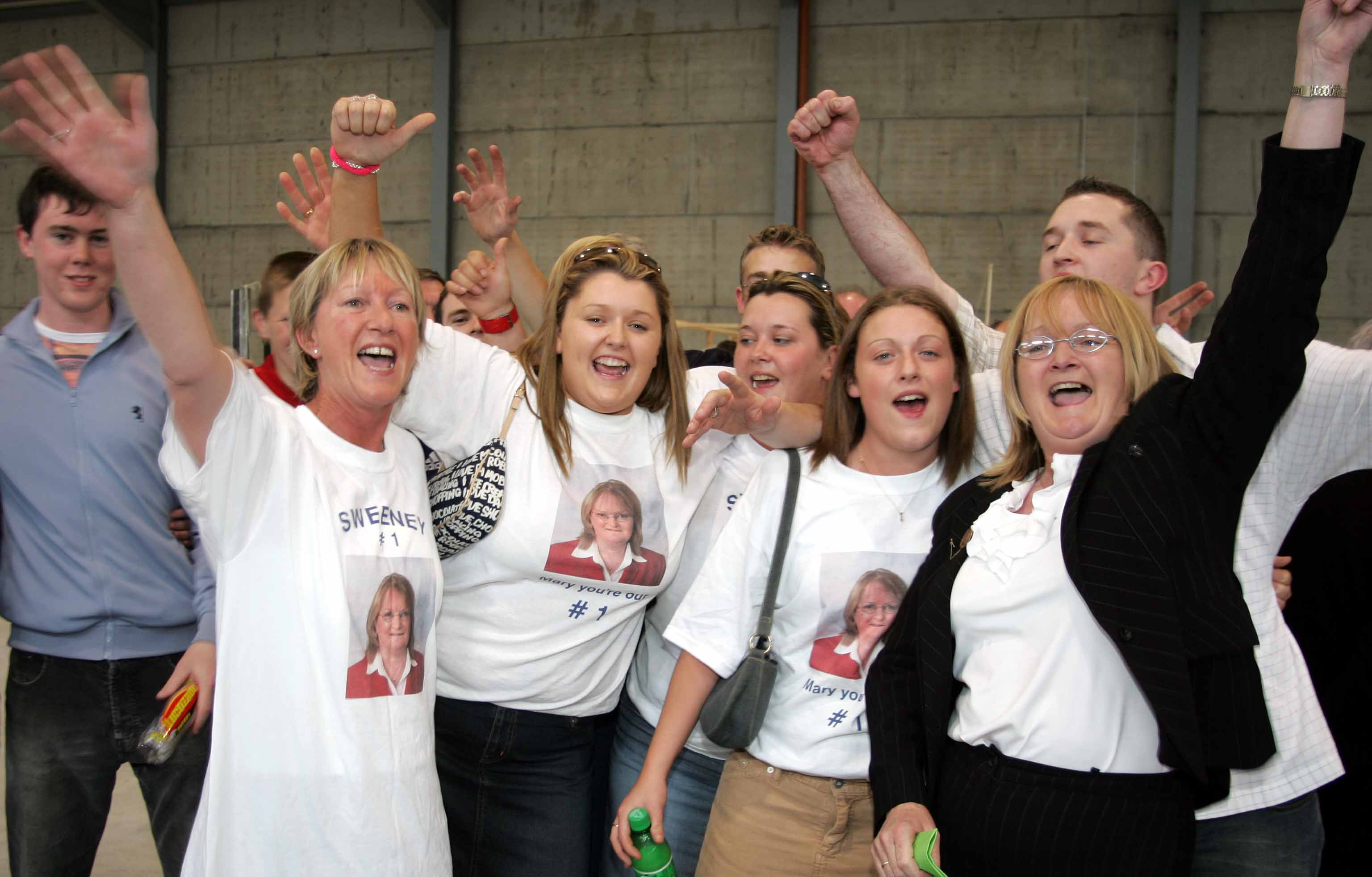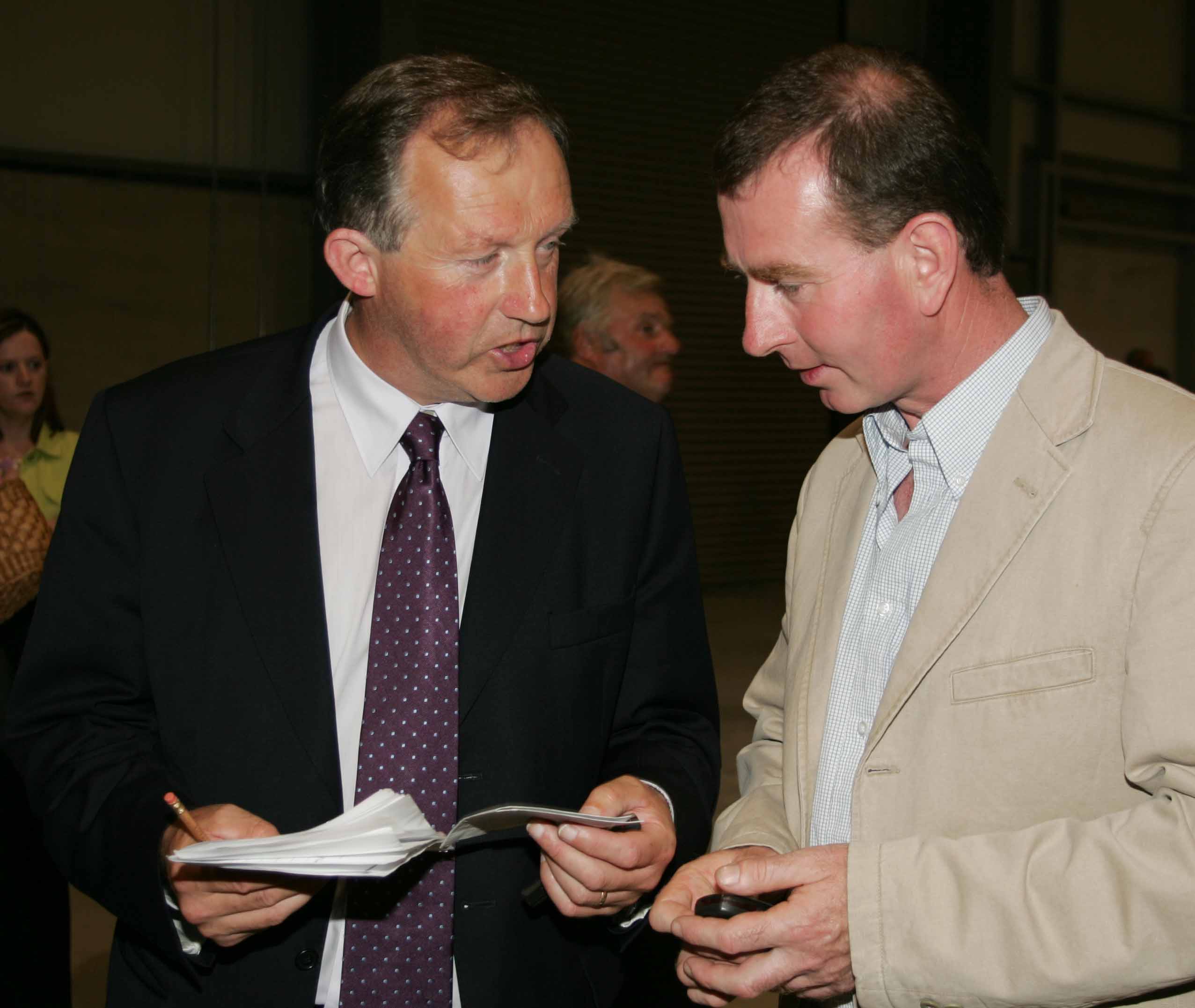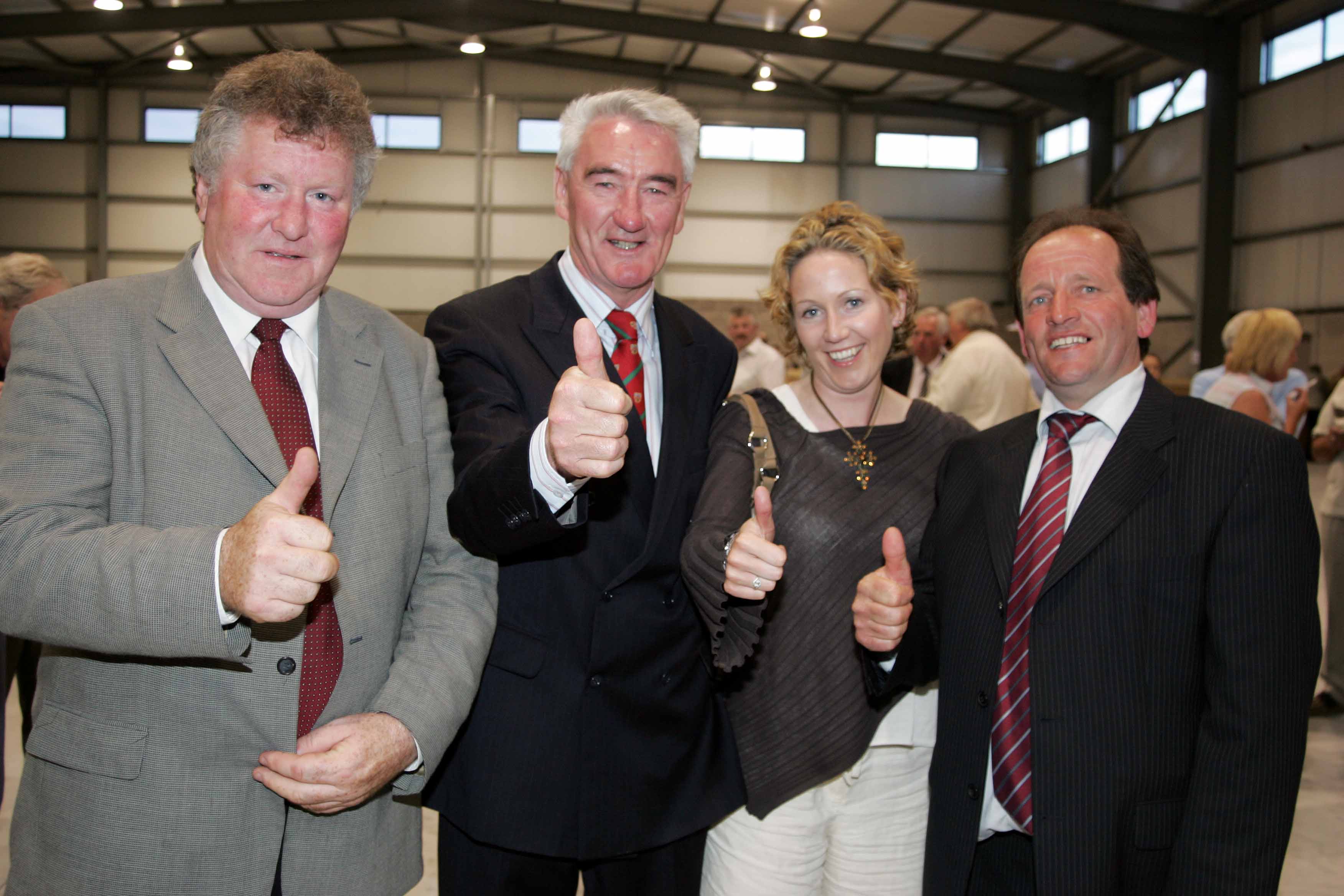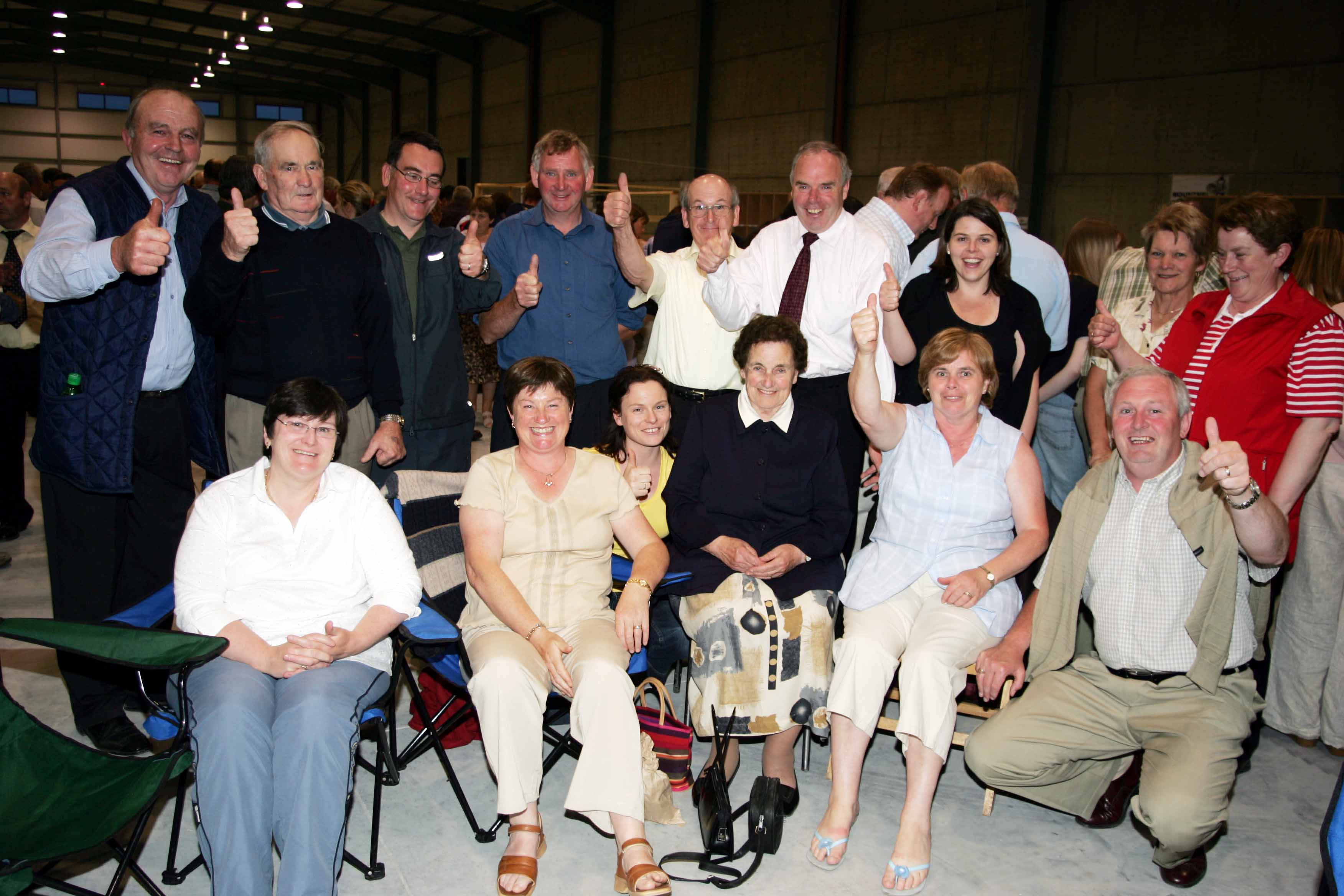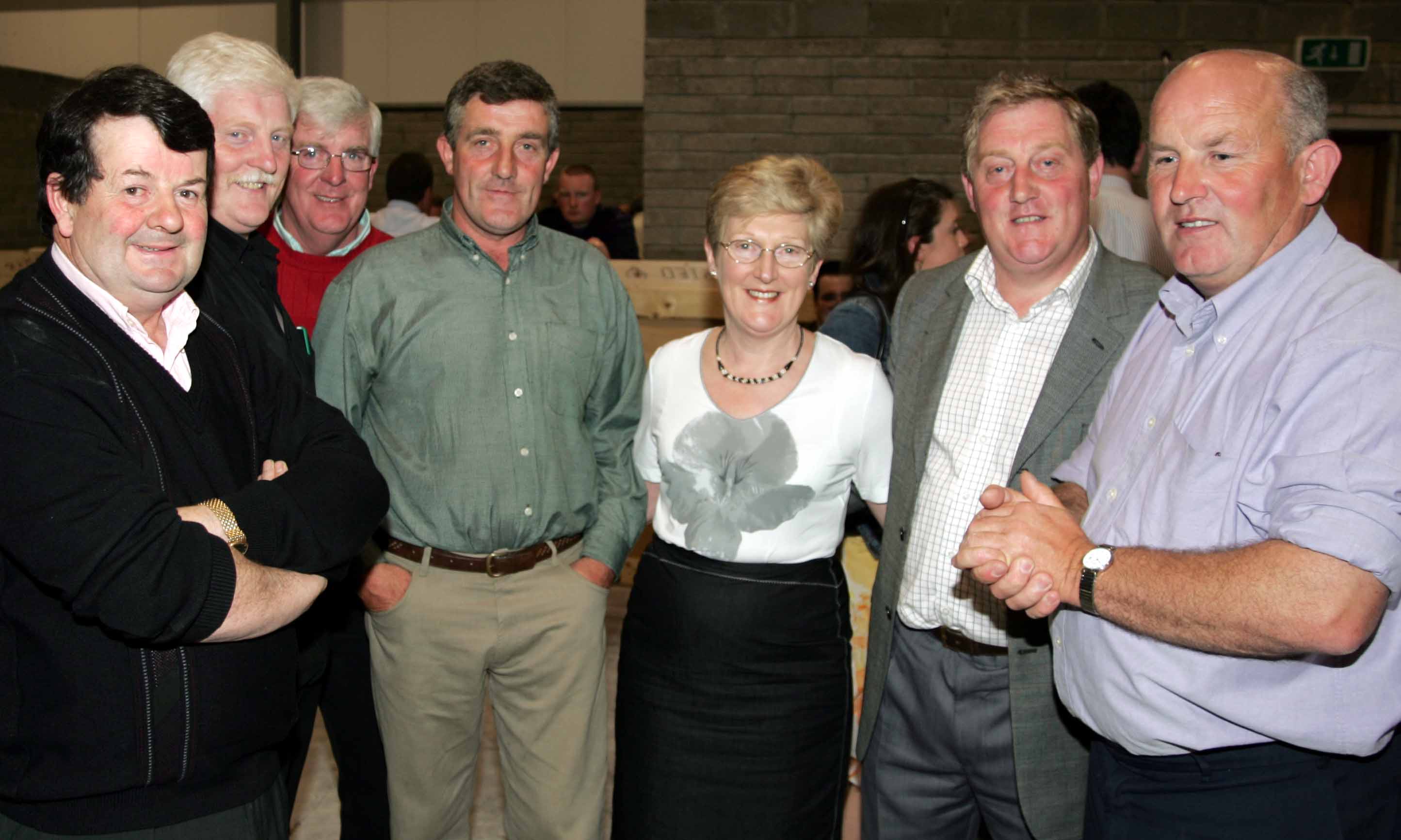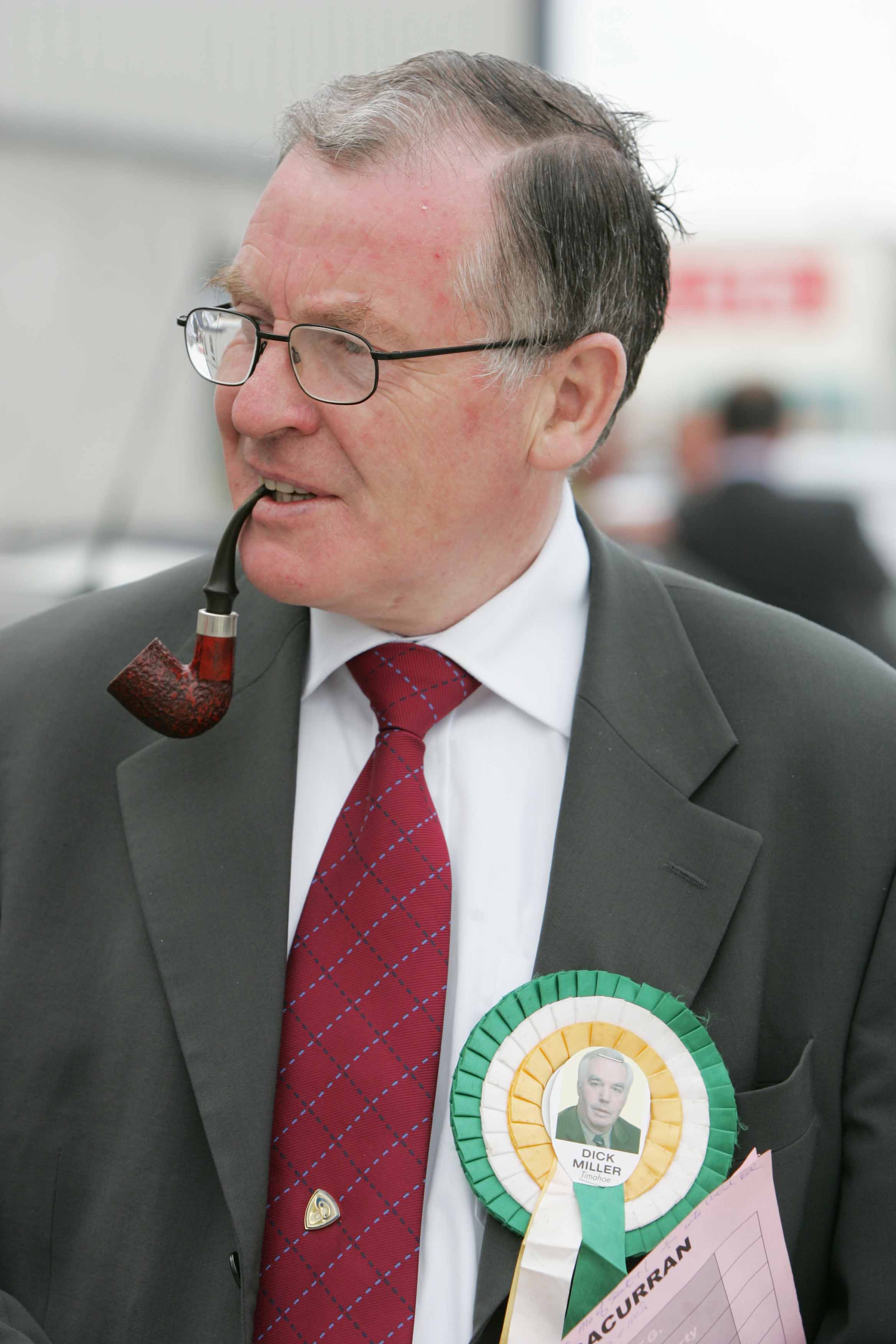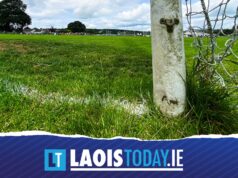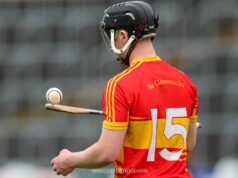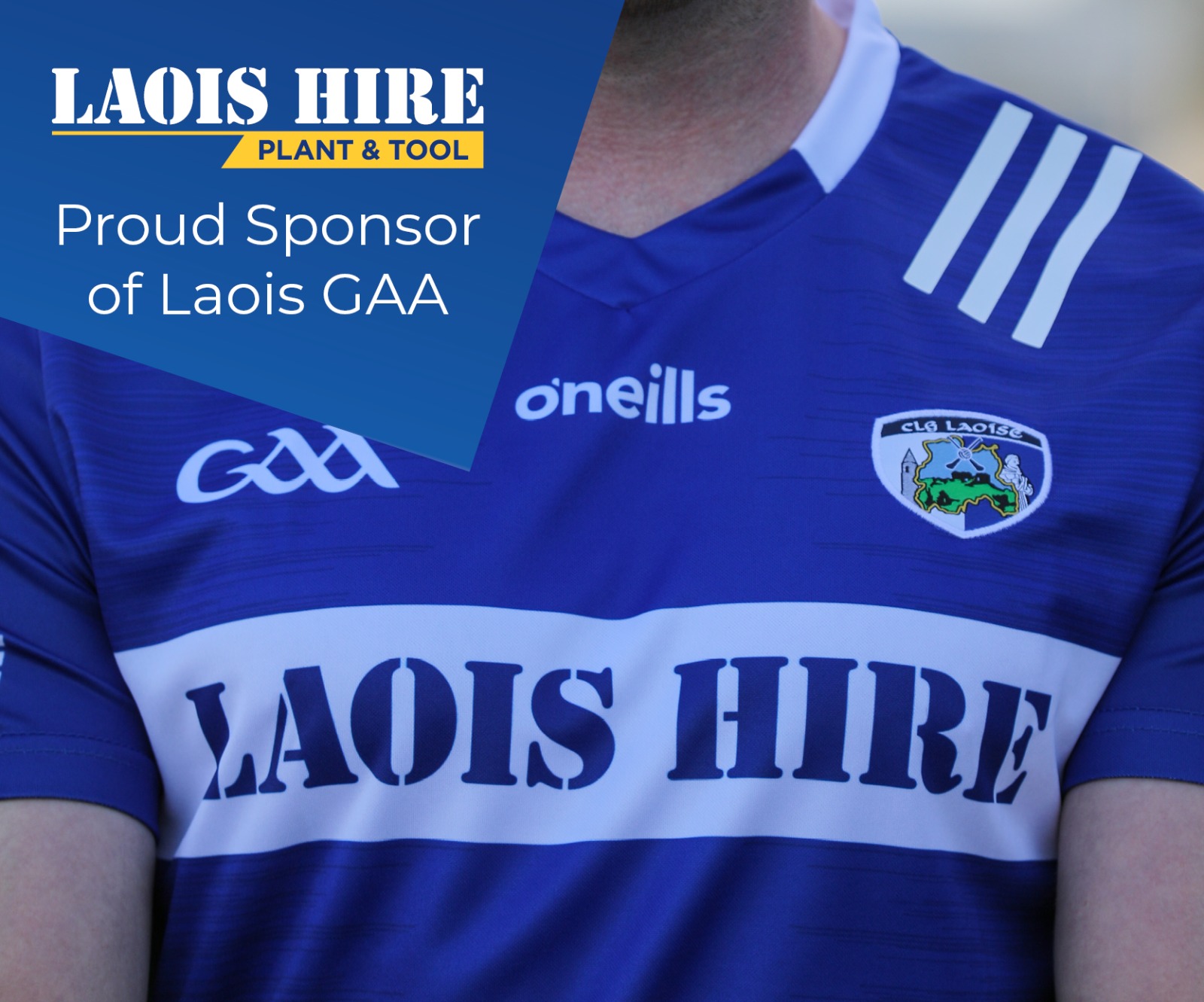Brought to you in association with People First Credit Union
While the country was still basking in the warm afterglow of Bertie Ahern’s second term at the helm of government and as he said himself the ‘boom was getting boomier’, the local elections of 2004 had a mind all of their own.
Local elections are the toughest of all elections. They are personal and as much about personality, family and a local base as they are about local issues and policies.
Local elections are close quarters combat where loyalties run deep and offer a rich vein of support, while old enmities can run even deeper and prove costly in the cut and thrust of the unforgiving ballot box.
What emerges in Laois in the 2004 County Council elections is that internal party rivalries can prove even more attritious than inter-party competition.
As a long serving Fine Gael councillor Bill Fleming from the Swan told me when he lost his seat in 1985 as I tried consoling him as he walked a broken and dejected figure to his car, a hulk of a man now stooped and reduced to tears, “Your own is the worst.”
He was certain he had come a cropper due to internal party rivals rather than the Fianna Fáil onslaught that played out at the count in St Mary’s Hall in Portlaoise that day.
The locals are the grand national of elections. It’s a tough course, not for the faint hearted and you never know just what or who might bring you down.
Perseverance matters. Very few make it through on the first time of asking and more often than not the electorate will seek out community endeavour and commitment before candidates can expect to cash in their winning docket.
Nationally, Brian Cowen was Minister for Finance. While no one knew then what we know now, at the time it looked as if he could do no wrong.
Previously, he had served as Minister for Health and he wasn’t flavour of the month on the Laois side of the two-county constituency due to a view or perception that he constantly favoured Tullamore hospital for prioritisation ahead of Portlaoise.
On his watch Portlaoise lost out to Tullamore as the lead centre for cancer care in the region, a speciality which Portlaoise thought it secured thanks to its pioneering mammography services.
In any event the recommendation from the independent specialist and authority on the matter, the late Dr Donal Hollywood, who ironically died of cancer himself afterwards at a young age, designated Tullamore as the centre of excellence.
And by the time of the 2004 local elections the current Fianna Fáil leader, Micheál Martin held the health portfolio.
Whether it was over the perennial perceived threats to Portlaoise Hospital or other internal party tensions and rivalries, lifelong Fianna Fáil man, Tom Jacob parted company with the party.
He was first elected to the Council in 1991, but lost out next time in 1999 to then newcomer and first time candidate, Catherine Fitzgerald.
Tom Jacob’s fellow Fianna Fáil candidate had pipped him at the post by just 57 votes, on the tenth count, with Catherine Fitzgerald shading it by 673 votes to Jacob’s 616. It was a great one to win for Catherine Fitzgerald, but a sore one to lose for Tom Jacob.
2004 saw the rematch. Local political folklore has it that Jacob as an Independent found favour with the strong prison officers voting block and that this was significant in his success and return to the Council.
Perhaps every bit as significant, long time poll topper Joe Dunne had passed away making space for someone else to emerge, albeit not on the Fianna Fáil ticket this time round.
Brian Stanley makes his breakthrough
Fianna Fáil had come in to the 2004 election with 14 councillors but were down to 11 before it was over.
Their vote took a serious hit from a record high of over 51% back to just over 37% of the first preference vote. There were a number of contributory factors – the death of Joe Dunne, the departure of Tom Jacob – and in Portlaoise the arrival of Brian Stanley for Sinn Féin.
Stanley was no overnight success. He had soldiered and paid his dues, regularly seen knocking doors on his own between one election and another, particularly in the large housing estates where he used his foothold as a member of the Portlaoise Town Council to good effect.
He had previously contested the 1999 election, bowing out with 541 votes on the penultimate ninth count.
He had put down a marker and came back to collect in 2004 coming in on the first count with 1,244 votes, second only to poll topper Willie Aird, and setting the stage for his ultimate election to the Dáil in 2011.
It was a landmark election for Willie Aird too. He took over the mantle of poll topper from his political rival but also great friend Joe Dunne. Willie was first elected in 1979 and as the Fianna Fáil grip on control of the Council was now diminishing Willie would get to serve as Chairman and Mayor of Laois for the first time.
His grandfather William P Aird had previously held that distinction at the very foundation of the state from 1925 to 1928.
Since John Moloney, John Hosey, Padraig Fleming and Liam Hyland had masterminded the 14-seat Fianna Fáil landslide victory of 1985 the chair of the Council had been in their gift up until now.
Prior to that it had been the preside of Tom Keenan, but that’s a story for another day.
Willie Aird and Brian Stanley are tales of perseverance but so too are other names on that Portlaoise ballot in 2004. There was one Rotimi Adebari who surprised everyone with his 556 showing, before he was to cause a bigger stir the next time in 2009. Will Rotimi make a return bid this year?
Kathleen O’Brien too gave it a good shot and she was to stick the course to get elected on the next occasion also.
Not so lucky was Jack Nolan who ran for FF, showing that sometimes public popularity doesn’t necessarily translate into votes, while Labour standard bearer Tom Phelan continued to fly their flag despite the dismal returns.
No TDs need apply
One of the most significant aspects of the 2004 local elections is that it was the first time that members of the Oireachtas were barred from contesting, bringing to an end the dual mandate of being a councillor while also serving in the Dáil or Senate. This was a provision introduced by Fianna Fáil Minister Noel Dempsey.
As with all such matters in politics there is always a way round. While critics will claim it is glaring nepotism there is a case to be made for keeping it in the family.
Very often family members are the most committed, trusted and loyal supporters and not everyone is cut out for the often thankless nature of politics.
Anyway who better to mind your backyard than one of your own? Nepotism has long been in evidence on the national political scene and it’s not unusual locally either.
With then Deputy John Moloney and Senator Kieran Phelan prohibited, under the new legislation, from running for the Council, contesting in their place were their brothers Micheál and Brendan.
They still had to be elected in their own right and they were, although ironically both would subsequently fall out with the Fianna Fáil party and go as Independents.
Brendan Phelan, who was not selected by Fianna Fáil in 2014 ran as an Independent and held the seat. He is contesting this time again and at stake is not just his seat but a proud family tradition as his father before him, Pat Phelan, was a councillor too for many years.
In the Mountmellick electoral area, John Moloney had many loyal lieutenants like Paddy Bracken, Michael Gormley and Joe Digan and not everyone was over the moon about his brother Micheál running in his place.
Losing out was Joe Digan from Clonaslee, who was the outgoing Chairman of the Council that year. Joe still likes to tell a different version of why he lost his seat, a story in which I am to blame …
Not at all pleased, big Joe stuck at it but has failed in both subsequent local elections in 2009 and 2014 to win back his seat in a radically changing political landscape, where Fianna Fáil are now down to seven seats from the glory days when they held twice that many when he was first elected in 1985.
Larry bounces back for Labour
But nowhere in the 2004 local elections in Laois is perseverance more prevalent than in the Borris-in-Ossory electoral area.
Here too we see the sharp end of the ban on the dual mandate where two Fianna Fáil sitting councillors, Deputy Seán Fleming and Senator Kieran Phelan are obliged to step aside.
It’s important to remember too that the Borris-in-Ossory electoral area back then was more compact, had seven seats and was far less sprawling than today’s monstrosity which runs from beyond Rosenallis right down to Roscrea and on to Durrow and Cullahill.
In 1991 the good humoured Laois VEC Adult Education Officer, Larry Kavanagh was first elected to the Council on the Labour ticket.
It was quite an achievement by the Mountrath man as it was a line-up that included Liam Hyland TD and the formidable Jimmy Kelly, previously of the Labour fold but now running Independent.
Larry lost his seat in 1999 in a celebrated contest with John Bonham, where they both tied on 795 votes, leaving the matter to be decided in the High Court on the interpretation of disputed ballots and a fraction of a vote.
The longest running count was later the subject of a book by the Returning Officer, Louis Brennan, to which we will return to in the coming weeks.
In any event Larry licked his wounds, sucked up what was a hard defeat to stomach, persevered and bounced back for Labour in 2004. His tenacity was rewarded with a stint as Chairman of the Council later that term in 2005 but he sadly passed away while in office with his son Larry Jr being co-opted.
Topping the poll in 2004 was John Joe Fennelly, a habit he hasn’t tired off even though his home base of Abbbeyleix is since switched in to the Portlaoise electoral area.
His father Tom, affectionately known as the Scal Fennelly would be proud, for despite a number of attempts the staunch Paddy Lalor man failed to make it to the Council, his last stab at it being in 1991.
Port’ loves the PDs
Up until the last local elections in 2014 Laois had five electoral areas in contrast with the current three and a total of 25 county councillors compared with 19 today.
In 2004 the Emo electoral area returned a Progressive Democrat councillor, popular local primary school principal, Paul Mitchell.
There was no one more pleased than the former IFA boss, Tom Parlon who as a PD Minister was glad to see someone keeping the pot on the boil for him back home in the Laois-Offaly constituency.
Indeed the PDs rang eight candidates in Laois and a further six in Offaly. Mitchell was the only one elected in Laois with two, including Eddie Fitzpatrick, who is now in the Fianna Fáil corner, winning seats in Offaly.
But Paul Mitchell didn’t come out of the blue. Portarlington has always been fertile ground for the PDs with Cathy Honan being first elected there in 1991, as was her counterpart Bridget Emerson (mother of star Laois footballer Hughie) on the Offaly side of the town for the north Offaly electoral area which spanned from Gracefield and Bracknagh into Edenderry and Rhode.
In Laois paying the price for Paul Mitchell’s success was another Fianna Fáil casualty, Mickey Costello, a well liked and decent man who had worked in Butler’s Engineering.
Also holding his seat was the immensely well-regarded Vicarstown publican, Mick Turley – who came from way behind to pip Costello for the last seat. Mick later died suddenly in early 2005 with his brother John being co-opted for the remainder of that term.
Dick Miller gets a result
For students of politics and political anoraks like myself the statistics and breakdown of the count results make for fascinating reading, but they don’t tell the full story as they are merely names and numbers.
Over the coming weeks in the countdown to this year’s local elections on May 24 we will be trying to give some background insight and context to those results and the personalities behind them.
As we said at the outset, sometimes the most intense rivalry and competition isn’t necessarily from your political opponents but rather from within your own party.
This is something that Mary Wheatley was to find out the hard way in 2004 when she lost her seat in Luggacurran to her running mate Dick Miller.
Both are steeped not only in the Fianna Fáil, but the GAA tradition and Mary who was the first woman ever elected to Laois County Council lost out to Dick the former County Board Chairman, one of her own. She was another casualty of the class of ’85.
It was a story that was to repeat itself ten years later in 2014, but on this occasion Dick himself was on the receiving end.
As Bill Fleming might say, “‘Your own is the worst.’”
How they voted in 2004
*Those in bold were elected
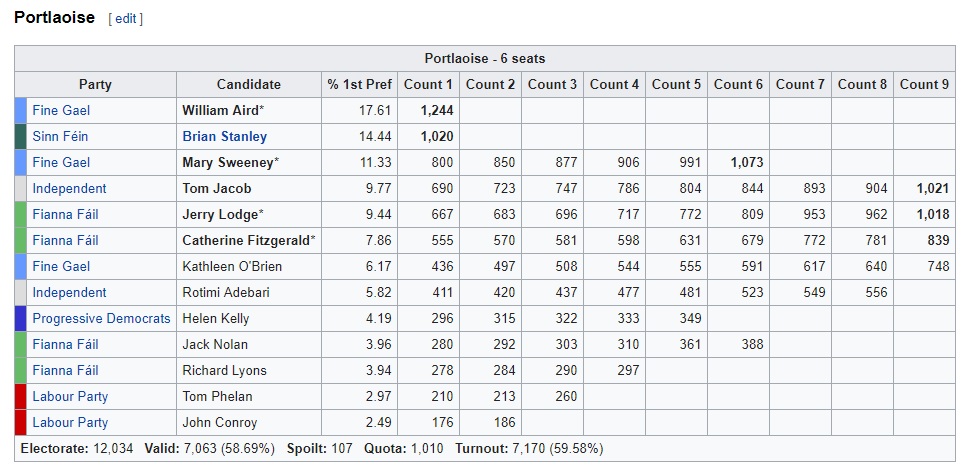
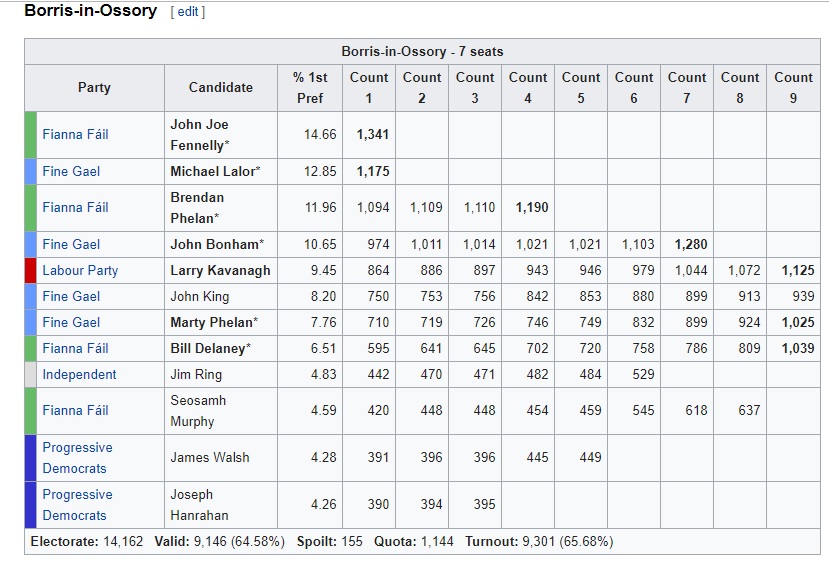
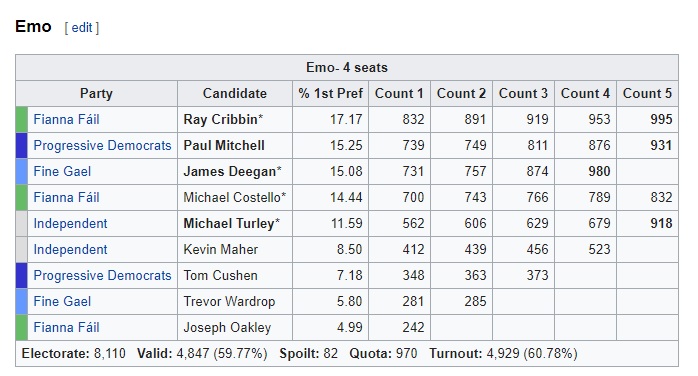
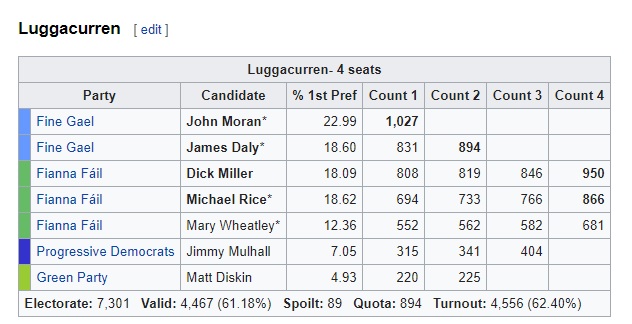
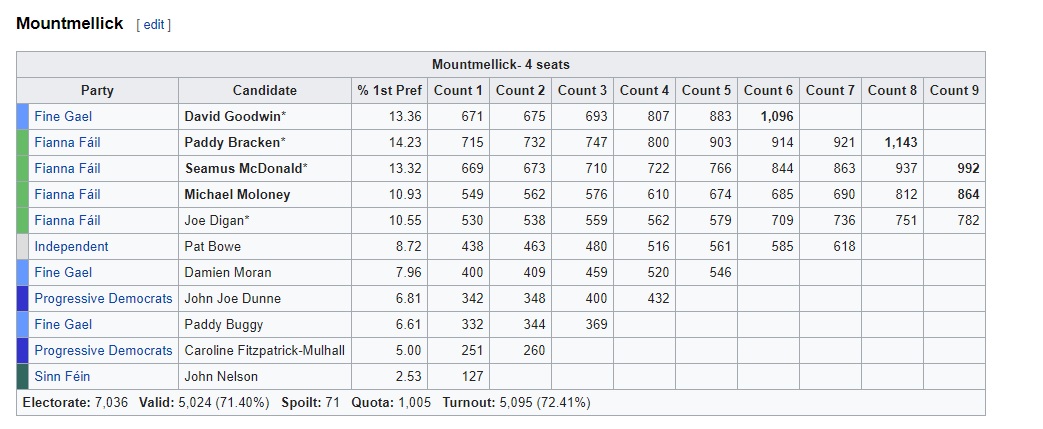
SEE ALSO – All of the declared candidates in this year’s Local Elections in Laois

